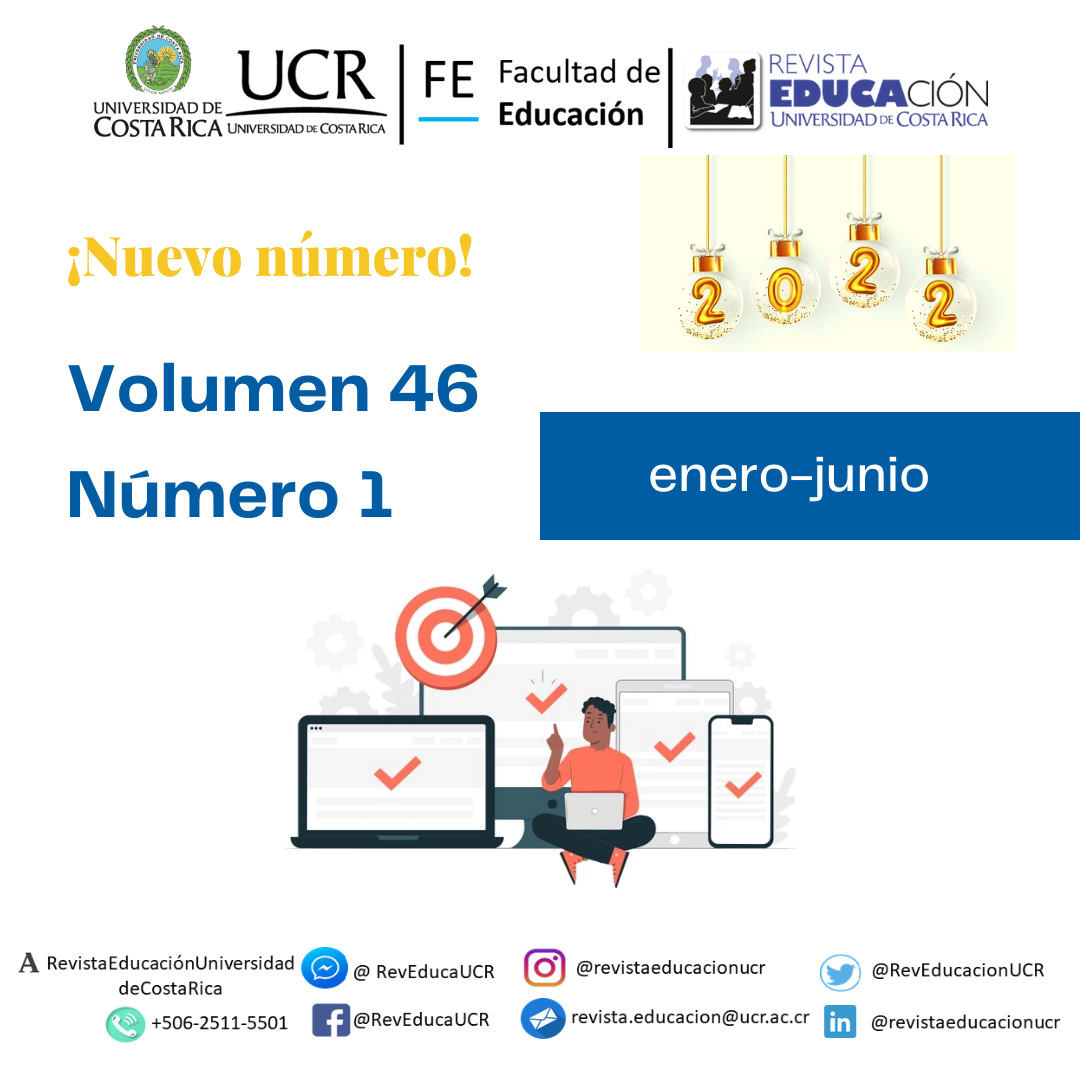Abstract
One prerequisite for future scientists involves life skills training for successful performance of job duties. The development of soft skills is even more crucial for interdisciplinary areas such as Medical Physics. The University of Costa Rica provides such an opportunity through their Social Outreach Mentoring Program for undergraduate students interested in attaining research experience. Ludic teaching resources are used to cultivate understanding and enjoyment of this area of study, given its advanced and multidisciplinary nature as well as develop a community of knowledge pertaining to this common interest. Varying student experience and learning based on perceptions from 9 participants including the lab administrator are covered who were asked to share their written both positive and negative impressions of their experiences in the lab with their fellow students. As a result, two undergraduate program participants were selected to speak at an international science conference. Such intellectually challenging activities juxtaposed with an empathetic work environment serve to foster student self-confidence and actively engage students. Didactic materials helped enliven discussion and Students displayed more willingness to share their research, which revealed the high number of undergraduates taking part in research programs. Such mentoring opportunities tap into student empathy and help nurture soft skill development through enjoyable learning experiences as well as foster technical and scientific skills required for future employment.
References
Cómo citar
Porras-Chaverri, M. A. (2022). Una experiencia didáctica en la formación de personas jóvenes científicas a través de la participación en investigación científica en el Laboratorio de Física Médica Computacional de la Universidad de Costa Rica. Revista Educación, 46(1). Recuperado de http://doi.org/10.15517/revedu.v46i1.43547
Referencias bibliográficas
Adams, S. K. (2019). Empowering and motivating undergraduate students through the process of developing publishable research[Empoderar y motivar a los estudiantes de pregrado a través del proceso de desarrollo de investigaciones publicables].Frontiers in Psychology,10https://doi.org/10.3389/fpsyg.2019.01007
Bosch, G., y Casadevall, A. (2017). Graduate biomedical science education needs a new philosophy [La educación de posgrado en ciencias biomédicas necesita una nueva filosofía].MBio, 8(6). https://doi.org/10.1128/mbio.01539-17
Brew, A., y Mantai, L. (2017). Academics’ perceptions of the challenges and barriers to implementing research-based experiences for undergraduates[Percepciones de los académicos sobre los desafíos y barreras para implementar experiencias basadas en la investigación para estudiantes universitarios].Teaching in Higher Education, 22(5), (pp. 551–568). https://doi.org/10.1080/13562517.2016.1273216
Gress, D., Jordan, D., Butler, P., Clements, J., Coleman, K., Goff, D., Martin, M., Nishino, T., Pizzutiello, R., Wagner, L. y Fairobent, L. (2017). An updated description of the professional practice of diagnostic and imaging medical physics: the report of AAPM diagnostic work and workforce study subcommittee [Una descripción actualizada de la práctica profesional de la física médica de diagnóstico e imágenes: informe del subcomité de estudio de la fuerza laboral y el trabajo de diagnóstico de la AAPM]. College Park, MD: American Association of Physicists in Medicine. https://doi.org/10.37206/163
Kondo, A. E., y Fair, J. D. (2017). Insight into the chemistry skills gap: the duality between expected and desired skills [Información sobre la brecha de habilidades químicas: la dualidad entre habilidades esperadas y deseadas]. Journal of Chemical Education, 94(3), (pp. 304–310). https://doi.org/10.1021/acs.jchemed.6b00566
McKinsey, E. (2016). Faculty mentoring undergraduates: The nature, development, and benefits of mentoring relationships[Profesorado dando mentoría a estudiantes universitarios: la naturaleza, el desarrollo y los beneficios de las relaciones de mentoría. Investigación de enseñanza y aprendizaje].Teaching & learning inquiry The ISSOTL Journal, 4(1). https://doi.org/10.20343/teachlearninqu.4.1.5
Page, N., y Czuba, C.E. (1999). Empowerment: What Is It? [Empoderamiento: ¿Qué es?].The Journal of Extension, 37(5).https://archives.joe.org/joe/1999october/comm1.php
Porras-Chaverri, M. A., Padilla, L., Alvarez, D., y Rosado-Méndez, I. (2021). International experiences on a budget: The role of online technologies in the training of young scientists in developing countries [Experiencias internacionales con un presupuesto: el papel de las tecnologías en línea en la formación de científicos jóvenes en los países en desarrollo].Proceedings of the XVI Mexican Symposium on Medical Physics,(pp. 040013-1–040013-6). https://doi.org/10.1063/5.0051229
Prisciandaro, J., Willis, C., Burmeister, J., Clarke, G., Das, R., Esthappan, J., Gerbi, B., Harkness, B., Patton, J., Peck, D., Pizzutiello, R., Sandison, G., White, S., Wichman, B., Ibbott, G. y Both, S. (2013). Essentials and guidelines for clinical medical physics residency training programs[Fundamentos y directrices para los programas de formación de residencia en física médica clínica]. (pp. 1-12), College Park, MD: American Association of Physicists in Medicine. https://doi.org/10.37206/149
Romanoff, S. J. (2016). The undergraduate learning community: A bridge to understanding why[La comunidad de aprendizaje de pregrado: un puente para comprender por qué].New directions for teaching and learning,2016(145),(pp. 77-84). https://doi.org/10.1002/tl.20177
Sarkar, M., Overton, T., Thompson, C., y Rayner, G. (2016). Graduate employability: views of recent science graduates and employers [Empleabilidad de los graduados: opiniones de los recién graduados en ciencias y empleadores].International Journal of Innovation in Science and Mathematics Education, 24(3), (pp. 31–48).https://openjournals.library.sydney.edu.au/index.php/CAL/article/view/11043/10644
Shaw, N. N., Sigmann, S. B. y Richard, L. B. (2020). The research storyboard: ideas for cultivating safe, engaged, and empowered undergraduate research students [El guión gráfico de investigación: ideas para cultivar estudiantes de investigación universitarios seguros, comprometidos y empoderados]. Journal of Chemical Education, 98(1), (pp. 167–174). https://doi.org/10.1021/acs.jchemed.0c00097
Shin, W. y Park, J. (2020). Developing a list of behavioral characteristics of creative physicists during their growth period[Desarrollar una lista de características de comportamiento de los físicos creativos durante su período de crecimiento]. International Journal of Science and Mathematics Education,19(4), (pp. 701-725). https://doi.org/10.1007/s10763-020-10082-w
Tsapaki, V., Tabakov, S.y Rehani, M. M. (2018). Medical physics workforce: A global perspective. Physica Medica, 55, (pp.33-39). doi: https://doi.org/10.1016/j.ejmp.2018.10.012
Tsapaki, V., Tabakov, S. y Rehani, M. M. (2018). Medical physics workforce: A global perspective[Fuerza laboral de física médica: una perspectiva global]. Physica Medica, 55, (pp. 33-39). https://doi.org/10.1016/j.ejmp.2018.10.012
Wylie, C. D.y Gorman, M. E. (2018). Learning in laboratories: how undergraduates participate in engineering research[Aprendizaje en laboratorios: cómo participan los estudiantes universitarios en la investigación en ingeniería].American Society for Engineering Education Annual Conference and Exposition. https://www.asee.org/public/conferences/106/papers/22448/view







